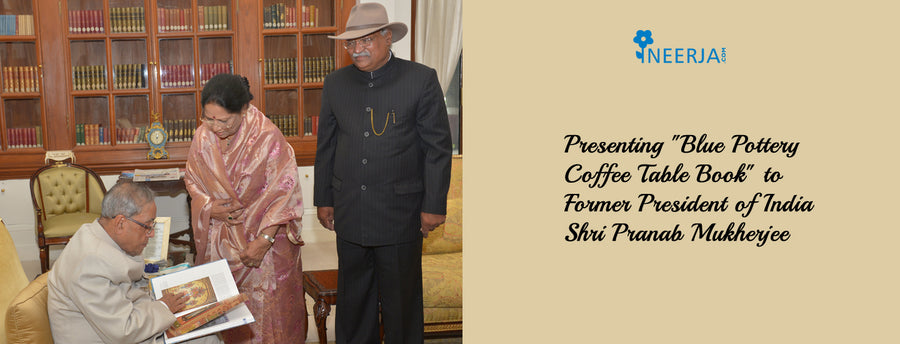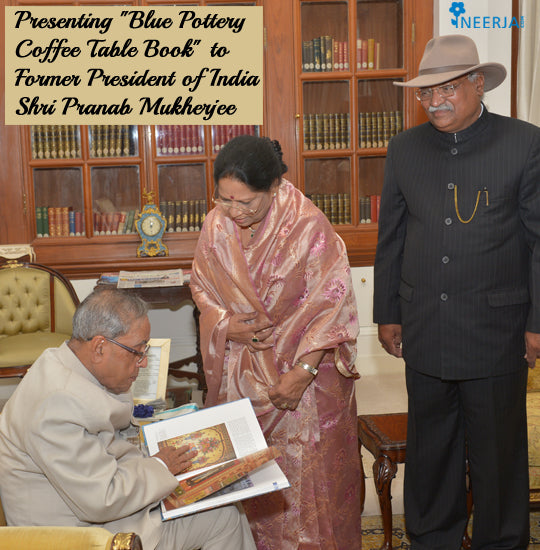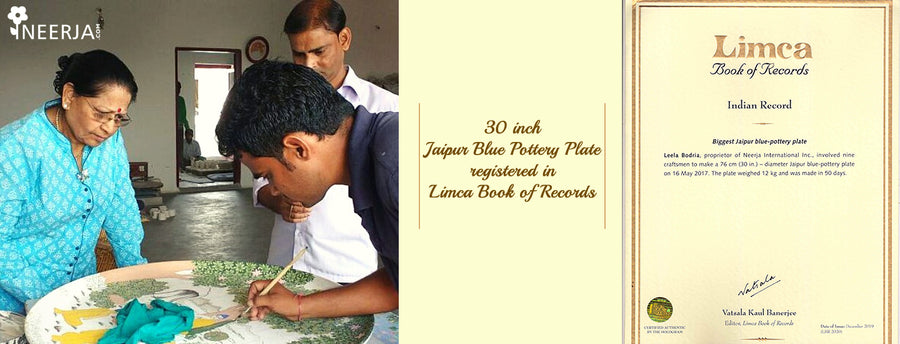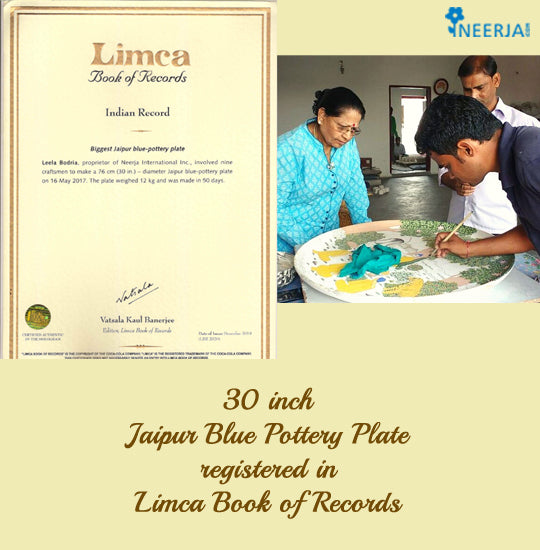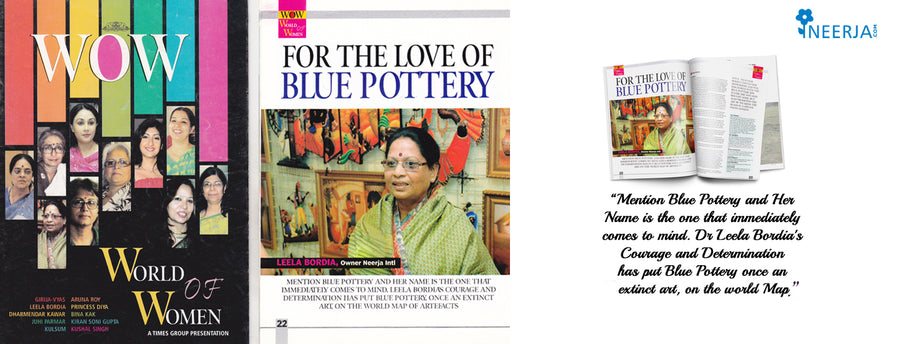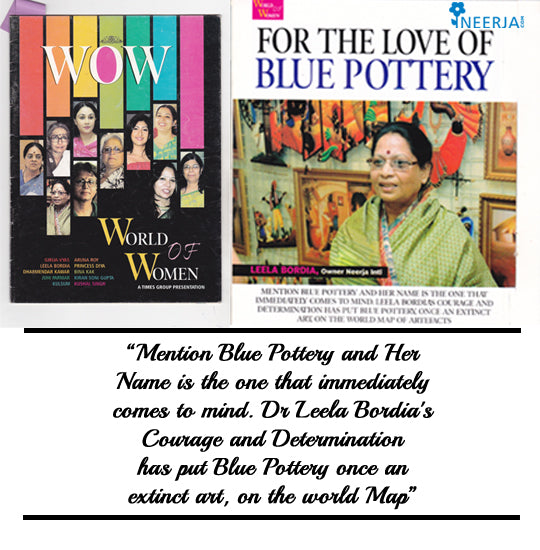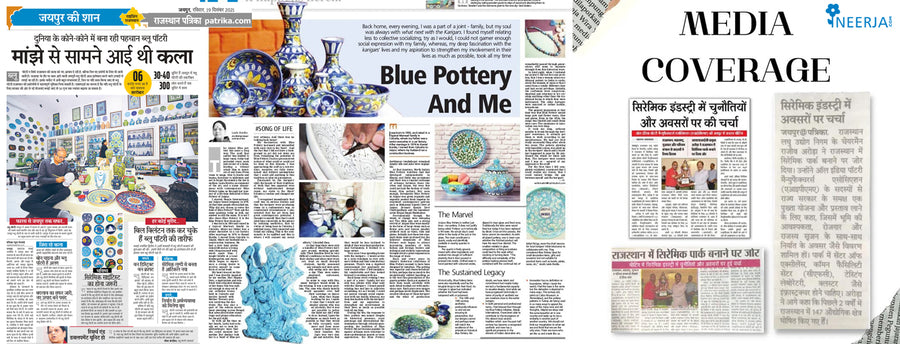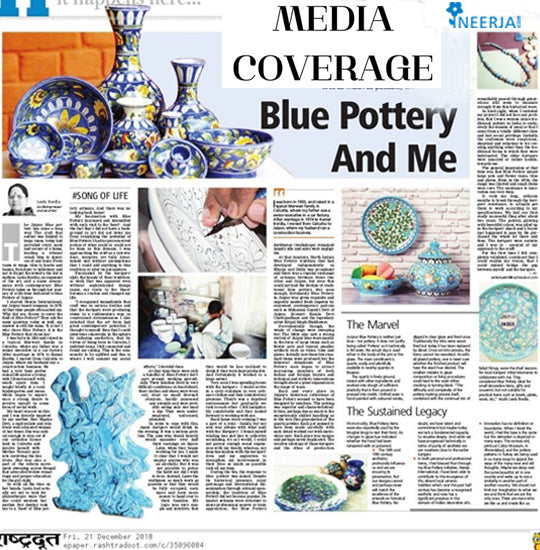About Us
Company Profile
Neerja International
Neerja International is the largest Manufacturer and Exporter of Blue Pottery in India. It’s Showroom and Warehouse is located in Jaipur City. The company was founded in 1978 by Dr. Leela Bordia. She has been instrumental in creating 500 unique designs and more than 1000 Blue Pottery products. Neerja International is actively involved in supporting thousands of craftsmen and their families.
The company has adopted 4 villages and supports the livelihoods of the craftsmen associated with this craft. It is not only Blue Pottery artisans who are dependent on the company but also other industries such as metal, wood, glass to name a few that play an ancillary part in amalgamation of new line of products.


Founder
Dr. LEELA BORDIA
Dr. Bordia was born in 1950 in Calcutta, India. Her father was an executive in a car factory and her mother worked with Nobel Peace Prize winner, Mother Teresa, for the destitute. Her mother's experiences made a deep impression on the young Leela.
In 1968, as Leela completed a Bachelor of Science degree at Rajasthan University, her mother died at a young age. Six years, later Leela Married an engineer, Kamal Bordia, and moved to Jaipur, where she worked as a teacher at a Montessori School.
There were many people in her life who saw the zeal in her and supported her, one of them being, John Singh & Faith of Anokhi, who pushed her to venture out as they saw the potential in her.
During one of her visits to the so called slums of Jaipur she stumbled upon this beautiful craft of Blue Pottery. It was in a dying state as it was becoming redundant.
No one wanted to buy plates and vases. She thought of this as her chance to help this group of extremely talented craftsmen. She did not mean to raise funds for them nor did she mean to ever for a business out of this but the inevitable followed.
In 1980, she established Neerja International with four craftspeople, two men and two women. Her journey started with only one craftsman’s belief in her but that was strong enough to move the mountains. Many craftsmen joined hands with her once they saw that her vision and mission both stood grounds.
Her main motto has been to make utility products in craft. So the product doesn’t just sit at a place to beautify but also has a value of utility. In spite of the fact that Blue Pottery has its own challenges, she tried to overcome them bit by bit and made some excellent objects from a tiffin to a hanging lamp.
Some Intriguing Facts:
- When Dr. Leela Bordia came upon this group of craftsmen her first request to them was to go back to the villages as they were all farmers by profession. She thought that two income generation would be a boon to them and farmland belongs to the farmers and shouldn’t be abandoned.
- She doesn't have a formal degree in Art but is the first and only designer at Neerja.
- Neerja International is named after Dr. Leela Bordia’s younger sister.
- Even though she has many accolades to her name, she is happy and at peace when she is with her craftsmen, breaking her own records.
- The biggest plate ever to be made in the history of Jaipur Blue Pottery (30 inches) is registered with the Limca Book of Records and the 40 inch one is under the process of being registered.
- She is the first Indian Ceramist to author a coffee table book.
- Many case studies have been done on Neerja International Inc. and her. CBSE has now made Blue Pottery a subject for children to take up as a life choice.
- Lastly she says, “If your house is running properly, everything else will”

